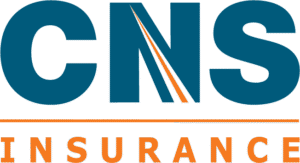Protect your business, your drivers, and your insurance rates with smarter hiring decisions.
When you’re hiring a CDL driver, your decisions go far beyond checking a résumé. Insurance carriers and DOT regulators expect companies to fully vet each driver’s background, experience, and safety record before they ever get behind the wheel.
That’s where hiring databases come in.
Systems like the FMCSA Drug & Alcohol Clearinghouse, DAC/HireRight, Motor Vehicle Records (MVRs), and CLUE reports give you the full picture of a driver’s risk profile — helping you avoid costly claims, compliance issues, and insurance premium increases.
At CNS Insurance, we work with fleets and businesses that rely on drivers every day — from trucking companies to contractors and delivery services — to help them understand and use these databases the right way.
Why This Matters for Employers
Before adding a CDL driver to your team, it’s critical to know exactly who you’re hiring.
Here’s why:
- Safety and Compliance: Ensures your new driver meets FMCSA qualification standards and doesn’t have unresolved drug or alcohol violations.
- Insurance Eligibility: Insurers rely on these same databases when deciding if a driver is insurable — and at what rate.
- Risk Management: Past performance often predicts future behavior. A history of claims, accidents, or violations can impact your bottom line.
In short: using the right databases before hiring helps you protect your business, reduce liability, and secure better insurance coverage.
The Most Common Hiring Databases (and Why They Matter)
Here’s a quick breakdown of the key databases used by both employers and insurers:
1. FMCSA Drug & Alcohol Clearinghouse
This is a federally required database that tracks all DOT drug and alcohol testing violations.
- Why it matters: Employers must check this before hiring any CDL driver and conduct annual queries to stay compliant.
- Our tip: Whether you’re confused by the Clearinghouse rules or just want to make sure your random testing program is audit-proof, our compliance experts can help.
2. Motor Vehicle Record (MVR)
A driver’s MVR lists all violations, suspensions, and endorsements for the past several years.
- Why it matters: Insurance companies review MVRs to determine risk and pricing. Too many points can make a driver uninsurable.
- Our tip: Pull MVRs at least annually for all active drivers — not just during hiring. Let CNS help you out.
3. DAC/HireRight Report
This report verifies a driver’s employment history, safety performance, and reasons for leaving previous jobs.
- Why it matters: Confirms accuracy and identifies potential red flags such as preventable accidents or failed tests.
- Our tip: Always request driver authorization before pulling this report to remain FCRA compliant.
4. CLUE (Comprehensive Loss Underwriting Exchange)
The CLUE report shows a driver’s claim history — both personal and commercial.
- Why it matters: Insurers use it to predict future claim behavior and adjust premiums accordingly.
- Our tip: If a CLUE report shows older or inaccurate claims, they can be disputed through LexisNexis before renewal time.
How These Databases Impact Your Insurance Rates
Insurance carriers rely on the same data you do — and sometimes even more.
When evaluating your fleet or driver risk profile, insurers consider:
- MVR violations and accident frequency
- CLUE-reported insurance claims
- Clearinghouse violations or incomplete return-to-duty processes
- Employment gaps or DAC report inconsistencies
Even one red flag can cause premiums to increase or restrict coverage options. That’s why proactive monitoring of your drivers’ records is one of the easiest ways to maintain competitive insurance rates.
How CNS Insurance Helps You Stay Ahead
At CNS Insurance, we help business owners, fleet managers, and HR teams simplify this process by integrating safety, compliance, and insurance under one roof.
Here’s how we can help:
- Pre-hire screening guidance – We’ll show you which databases to check and what red flags to look for.
- Driver file management – Through our partner Compliance Navigation Specialists (CNS), we can ensure every driver meets DOT hiring and qualification standards.
- Risk profile analysis – We review your drivers’ MVRs and loss history to help lower your premiums.
- Claims review and dispute assistance – We’ll help you understand how claims data impacts insurance renewals and how to correct inaccuracies.
Our goal is simple: make sure your business is protected and your insurance works for you — not against you.
For Drivers: How to Protect Your Professional Record
If you’re a CDL driver looking for new opportunities, it’s just as important to know what employers see about you.
Here are a few quick steps to stay in control:
- Request your free DAC report at HireRight.com.
- Pull your CLUE report annually from LexisNexis.
- Check your MVR from your state DMV for accuracy.
- Complete any Return-to-Duty requirements if you’ve had prior Clearinghouse violations.
A clean, verified record means more job offers, better insurance options, and stronger earning potential.
Manage Your Safety Story and Protect Your Business
At CNS and CNS Insurance, we help carriers:
- Set up DOT compliance programs
- Manage driver files and safety audits
- Build safety documentation for underwriting
- Find the best commercial trucking insurance coverage
Call us at 800.724.5523 or email info@cnsinsures.com to speak with our DOT Compliance or Insurance Specialists.




